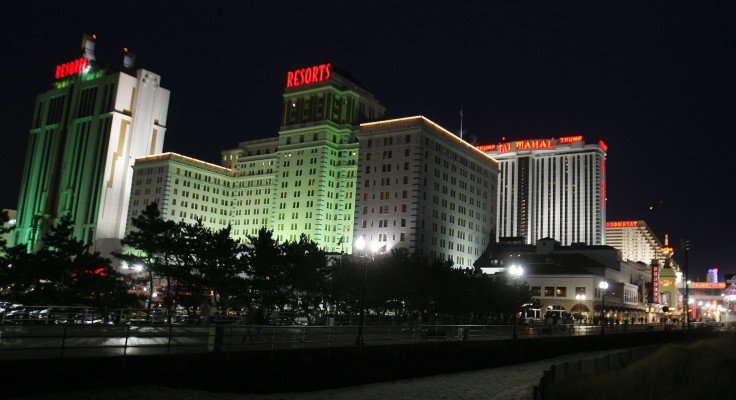Will Coronavirus Kill Atlantic City? Gambling, Casinos Hurt By Ongoing Pandemic

KEY POINTS
- Gambling revenue makes up 43% of Atlantic City's budget
- Casino revenue in March was down 43%, with April looking to be much worse
- 16,000 people have been laid off from the city's seven remaining casinos
Atlantic City, New Jersey, a late-century gambling mecca and long a tourist destination, was on the brink of financial disaster – and that was before the coronavirus hit, shuttering casinos in this one-industry town and putting 16,000 casino employees on the street as officials took steps to stem the contagion.
Moody’s Investors Service rates Atlantic City bonds at junk status, and the state has been in control of its finances since 2016. The city’s most recent economic slide began in 2014 as Native America casinos became more ubiquitous, and other states loosened their gambling restrictions.
The city gets 43% of its revenue from casinos, which don’t pay property taxes. Rather, casino tax payments are tied to revenues. City Council George Tibbitt has said there’s no way he can totally make up for the shortfall through budget cuts.
“It’s more about the uncertainty,” Council President George Tibbitt told the Press of Atlantic City. “I’m very concerned right now.”
The COVID-19-induced disaster comes on the heels of what appeared to be a steady recovery since the state took control. In February, casinos saw their best February revenue figures in years. But unlike its big brother in Nevada, Atlantic City appears to an older crowd, mainly from New York City and its suburbs, who bus in for the day and then go home. That clientele, which zips around in motorized wheelchairs and sports oxygen tanks, is especially vulnerable to the pandemic. Even when the doors reopen, scale-up will be slow with social distancing and other rules remaining in place.
Mayor Marty Small Sr. said there’s no need to panic just yet – even though he’s not giving estimates on first quarter tax payments for all businesses, the deadline for which was extended to June 1. Non-casino operations face normal property taxes, and with them hurting as well, it was unclear how many would be able to make their payments.
“We’re in pretty good shape for months to come, which is a stark contrast from where the city was just a few short years ago,” Small told the Press. “We’re keeping an eye on the future, including next year. So, we’re not sitting on our hands. We’re prepared to deal with issues as they come in a proactive way.”
In its gambling heyday, Atlantic City had 12 casinos, including two built by President Trump that went bankrupt four times. The city now has just seven.
Lawmakers admit they never planned for the devastation of a pandemic. The lowest tier of the PILOT law, which was enacted in 2016 to stabilize the city’s finances, assumes casino revenue of $1.8 billion and a payment to the city of $90 million. March’s gaming report showed revenue down 43% -- and that was in just the first two weeks of pandemic closures. April is sure to be much worse when the figures come out later this month.
© Copyright IBTimes 2025. All rights reserved.




















